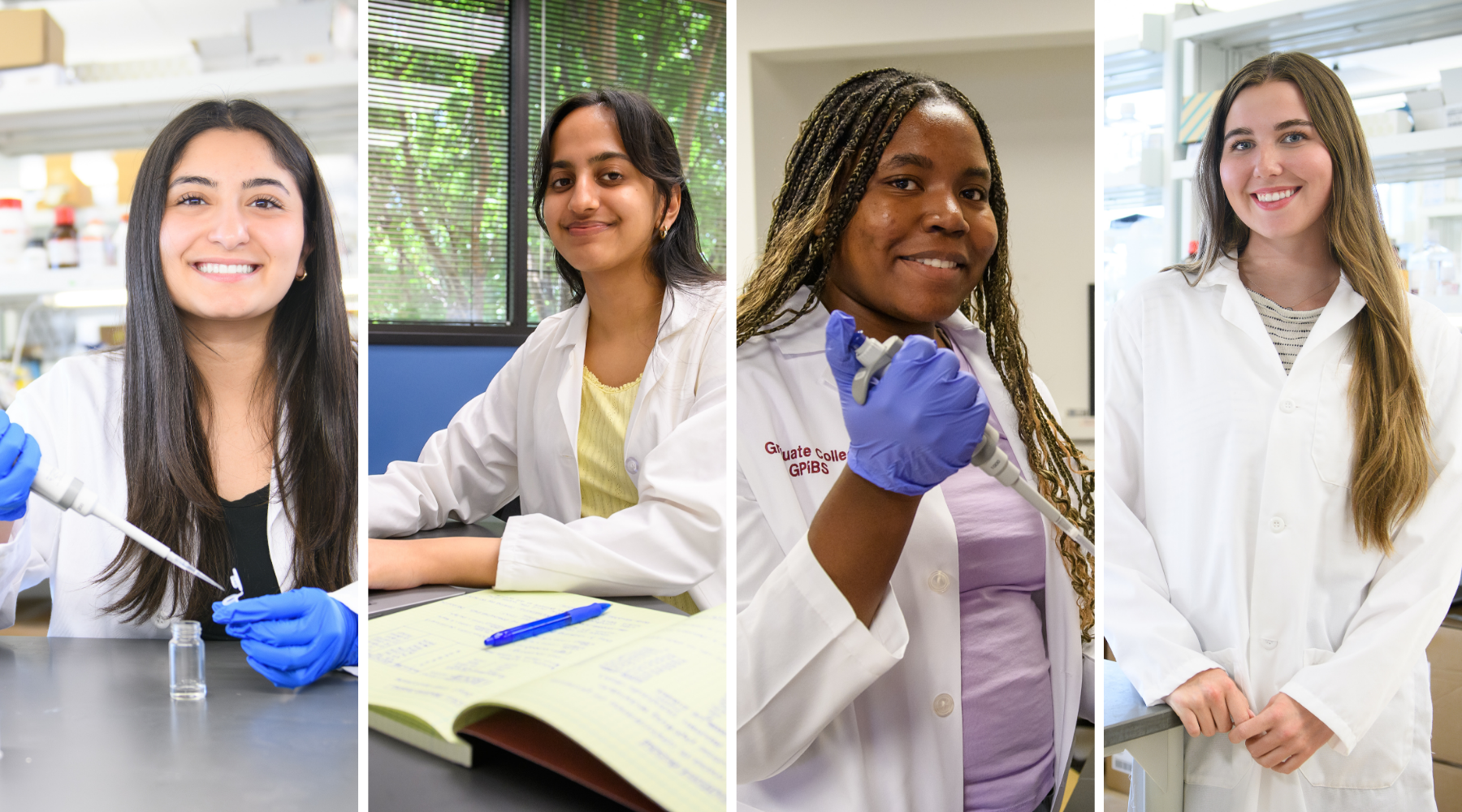Four Fridaylanders spent their summer interning as Sir Alexander Fleming Scholars at the Oklahoma Medical Research Foundation.
Completing the eight-week program were:
- Abby Bailey, a Casady High School grad entering her sophomore year at Texas Christian University
- Victoria Nwankwo, who will enter the University of Oklahoma this month after graduating from Putnam City North High School
- Ria Sachdev, a 2023 Casady grad who will be a sophomore at OU
- Parinita Varshney, who will attend the University of Texas after graduating recently from the Classen School of Advanced Studies High School
In the lab of OMRF scientist Elizabeth Finn, Ph.D., Bailey grew lung muscle cells. Her experiments were designed to increase the lab’s understanding of the makeup of cancer cells.
“My favorite thing about this experience was getting to work hands-on in the lab,” Bailey said. “We had full control over what we are doing in lab that day, with or without the help of the other people in the lab.”
Nwankwo studied genetic factors that might contribute to lower white blood cell counts in African Americans with lupus.
“My experience has been incredibly educational and eye-opening,” Nwankwo said. “This has deepened my understanding of genetics and its impact on health, especially within specific populations.”
Her OMRF mentor, physician-scientist Hal Scofield, M.D., described Nwankwo as “quiet and serious. But she acclimated to our loud and boisterous team and got some excellent work done.”
Sachdev, an Edmond resident who attended Casady High School, studied muscle atrophy this summer. The University of Oklahoma sophomore’s main takeaway: “It taught me that research can be far more creative than I previously thought.”
Her OMRF mentor, scientist Sue Bodine, Ph.D., said Sachdev’s experiments involved an enzyme known as UBR5. “Ria’s work helped us better understand the role UBR5 plays in regulating skeletal muscle mass,” Bodine said.
Varshney studied the proteins believed to be responsible for the plaque build-up that causes Alzheimer’s disease. She interned in the lab of OMRF scientist Heather Rice, Ph.D., who spent the summer of 2004 as a Fleming Scholar.
Varshney was amazed at how the summer flew by. “When you are constantly being challenged and learning something new, you become so immersed that you forget how quickly the time passes,” she said.
Rice said her intern was the first to test whether amyloid-beta, a peptide central to the development of Alzheimer’s, can disrupt the interaction of two specific proteins.
“Parinita’s initial findings are promising and have generated excitement in the lab to pursue this question further,” Rice said. “I was impressed with how quickly she grasped the science behind her project and how skilled she became in growing, treating, staining and imaging cells.”
The Fleming Scholar program, founded in 1956, has given more than 600 high school and college students from Oklahoma experience conducting biomedical research. It is named for Sir Alexander Fleming, the famed British scientist who discovered penicillin and in 1949 came to Oklahoma City to formally dedicate OMRF’s first building.
To learn more about the program, visit omrf.org/fleming.




